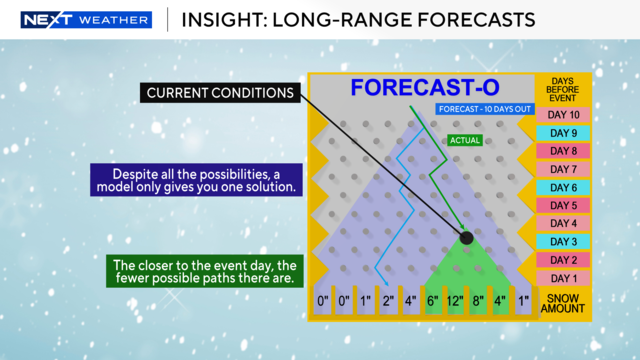
How long-range snowstorm forecasting is like a Plinko board
A system headed for the Twin Cities next week could bring snow, but it's a tricky forecast this far out. Think of it like a giant game of Plinko, with many different outcomes.
Watch CBS News

Director of Meteorology Mike Augustyniak was drawn to Minnesota by a love of active weather, and the opportunity to forecast for some of the most weather-savvy television viewers in the country.
Since joining the WCCO team in 2008, his forecasts have helped you prepare for Minnesota's increasingly extreme weather — including one of the coldest winters on record, one of the hottest summers on record, and the largest single-day tornado outbreak in Minnesota history — and all the small-but-important moments between. As the creator of the CBS Weather Watcher Network, leader within the CBS eTeam and Central Weather Group, his expertise helps to support and train CBS newsrooms across the country.
Mike's interest in weather began at an early age.
"I think my curiosity about the weather was fueled by the fact that, as a little guy, I was absolutely petrified of thunderstorms!"
In time (and with the help of a book called "Hippo Thunder"), Mike outgrew his fear, deciding in eighth grade that he wanted to study weather in college.
"The answers I gave on a 40-question 'interest survey' were fed into a computer, and the computer returned several careers that I might enjoy," Mike explained. "'Meteorologist' was one of the jobs the computer returned, and right then I knew it was the job for me." Mike studied atmospheric science under several of the world's leading research scientists at the University at Albany, where he received his Bachelor and Master of Science degrees. Findings from his master's thesis - original research on a local terrain effect called Mohawk-Hudson Convergence — is currently in use to help meteorologists make more accurate forecasts around the region.
Today, he continues to support lifelong learning, science, and scientists by serving as the past Commissioner on Professional Affairs for the American Meteorological Society and its 12,000 members. He is active in local and national non-profit organizations such as the National Marrow Donor Program (formerly 'Be the Match'), Twin Cities Pride, Twin Cities United Way and more.
Mike has appeared on the BBC, the Ellen DeGeneres Show, CBS Sunday Morning (where he serves as the show's meteorologist) and many other CBS News outlets. His work has been recognized with multiple Emmy Awards for broadcast excellence. He is an AMS Certified Broadcast Meteorologist, an AMS Certified Consulting Meteorologist, and is also a member of Phi Beta Kappa.
In his free time, Mike stays active by going to the gym, biking, mixing cocktails and traveling with his husband.

A system headed for the Twin Cities next week could bring snow, but it's a tricky forecast this far out. Think of it like a giant game of Plinko, with many different outcomes.

Highs will approach 80 on Tuesday as the next system positions itself far enough north to pull in some warm air.

The Twin Cities will enjoy a typical fall day on Friday, with a pleasant weekend to follow.
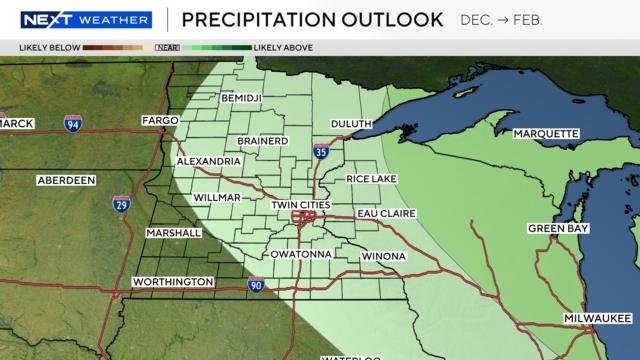
The odds slightly favor colder-than-average temperatures, especially in western Minnesota.
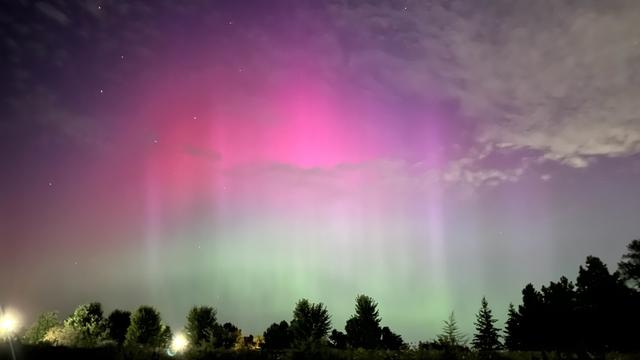
Minnesotans might have a chance to see the northern lights this week. Thursday looks to be the greatest chance in the latest forecast.
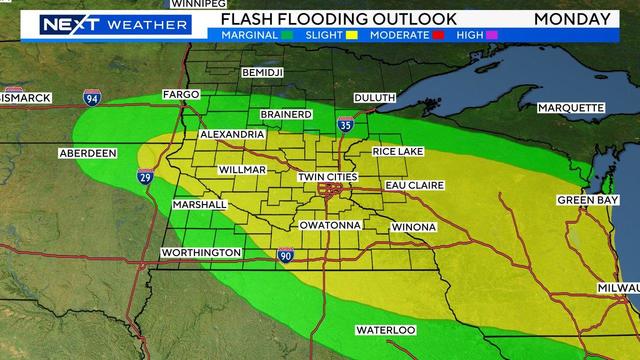
WCCO meteorologist Mike Augustyniak says the strongest part of the storm is moving to the east, quickly exiting Minnesota.
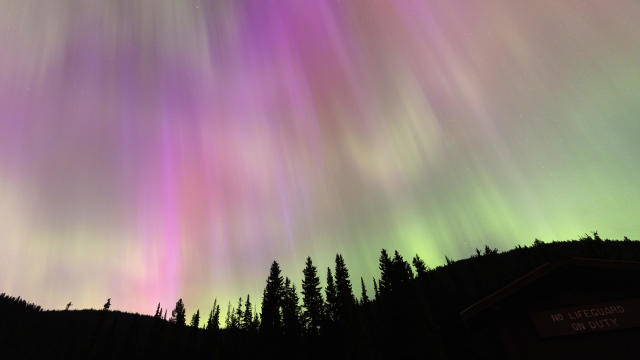
Minnesotans, consider this your aurora borealis alert. The northern lights could potentially light up the sky early this week, but there's still uncertainty in the forecast.
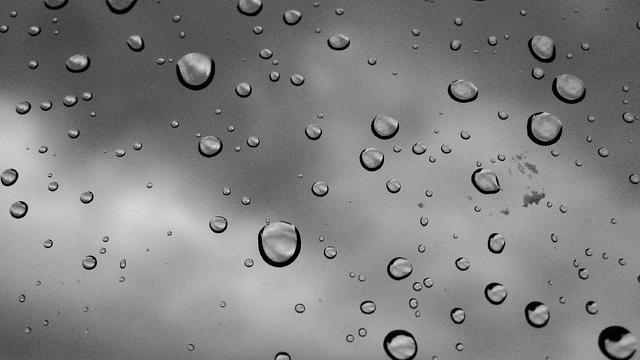
It's no secret that Minnesota has been lacking in sunshine as of late. In fact, it's been one of the dreariest first halves of meteorological summer on record in the Twin Cities.

Wednesday will be another day of isolated storms in the Twin Cities before we dry out and heat up this weekend.

The National Weather Service says a 90-foot-wide waterspout, a tornado that forms over water, took a dazzling and distressing ride across Minnesota's Lake Vermillion on Sunday afternoon.
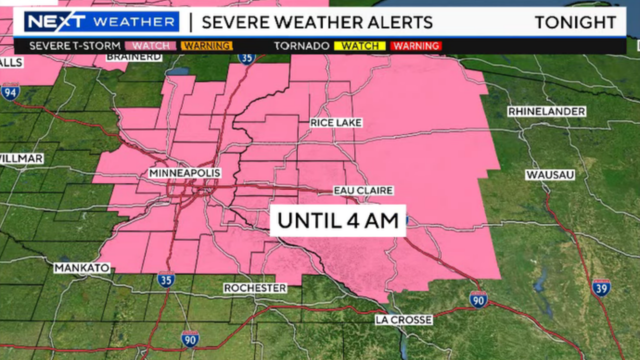
Monday will be hot and humid before potentially damaging severe weather moves in during the evening hours.
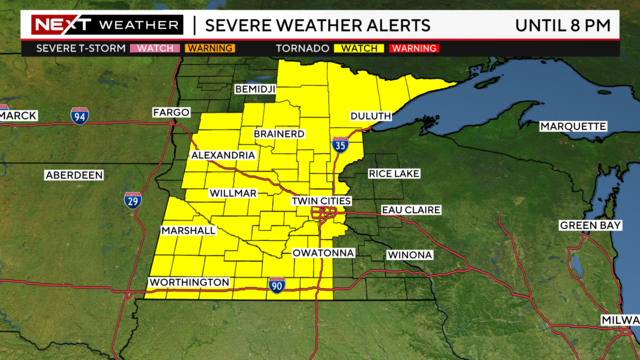
Now that morning storms have passed in northern Minnesota, the state is prepping for a second round that could bring widespread severe weather.

After this week's storms and mugginess, the workweek will end with a #Top10WxDay!
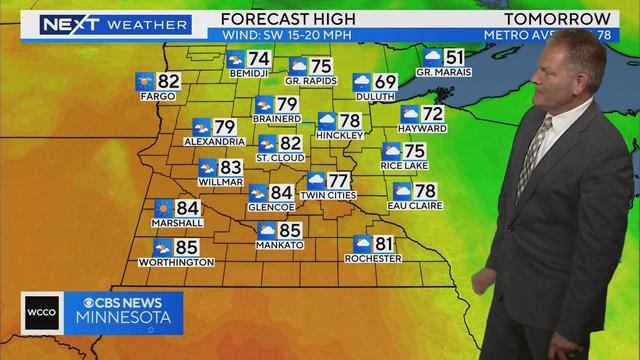
Clouds increase over the Twin Cities on Monday night, rain showers will roll in overnight, and severe weather is possible on Tuesday and Wednesday.
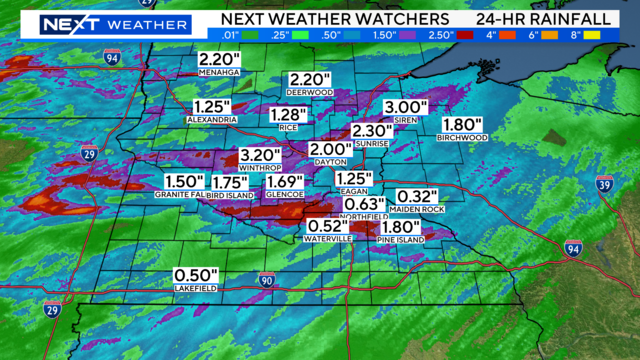
May will go down as one of the wettest in Twin Cities history, and June is also off to a soggy start.